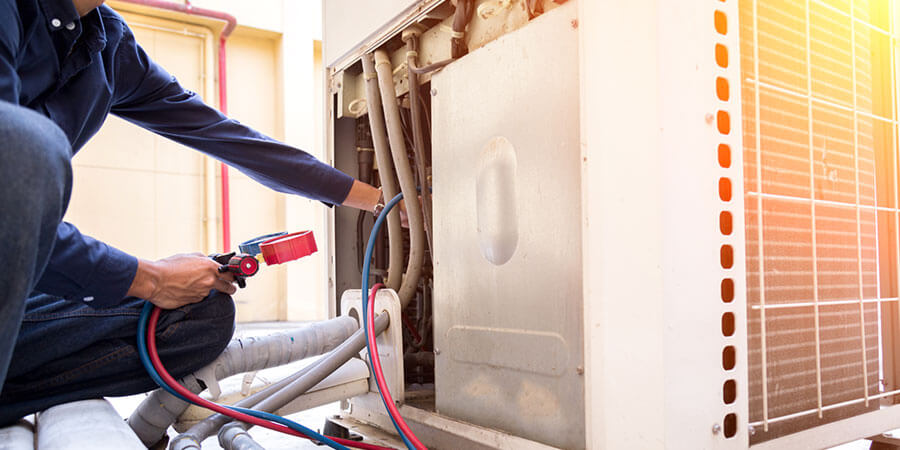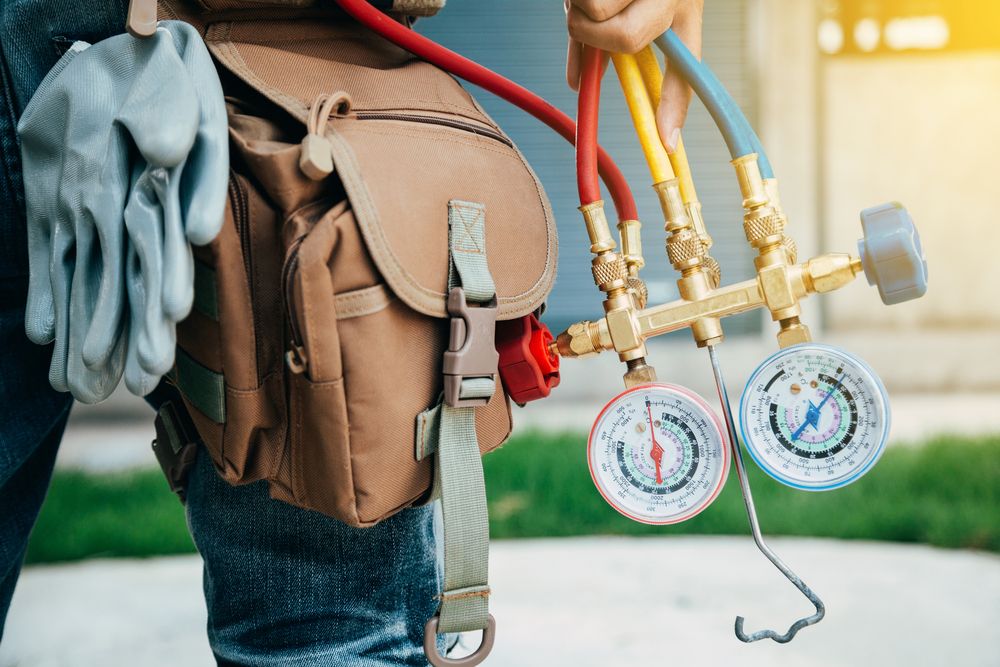Schedule Your System Inspection Today with DMAKS HVAC Experts.
Schedule Your System Inspection Today with DMAKS HVAC Experts.
Blog Article
Energy-Efficient A/c Systems to Minimize Energy Bills
As energy costs continue to rise, the relevance of energy-efficient A/c systems comes to be progressively evident. These systems not only guarantee considerable savings on utility costs however additionally contribute to a much more sustainable future by reducing power consumption.
Advantages of Energy-Efficient A/c Solutions
Energy-efficient cooling and heating systems provide various benefits that extend past simple price financial savings. One substantial advantage is the reduced environmental effect. By eating less power, these systems contribute to decrease greenhouse gas discharges, helping to deal with climate change and promote sustainability. This lines up with enhancing social demands for eco-friendly methods in residential and industrial setups.
In addition, energy-efficient heating and cooling systems frequently give improved convenience levels. A number of these systems include sophisticated innovation that allows for better temperature level control and improved air top quality (DMAKS HVAC). This leads to a much healthier interior atmosphere, which is specifically essential for people with allergic reactions or breathing issues
Additionally, spending in energy-efficient heating and cooling systems can boost property value. As even more consumers focus on power performance, homes and structures equipped with these systems might attract greater quotes in the property market.
Kinds Of Energy-Efficient Heating And Cooling Options
Just how can homeowners and organizations select the most appropriate energy-efficient heating and cooling alternatives for their requirements? The marketplace offers a variety of energy-efficient HVAC systems, each made to improve convenience while reducing energy intake.
One option is the variable refrigerant flow (VRF) system, which efficiently regulates the temperature level in numerous areas within a building. This system adapts its cooling agent flow to match the desired temperature, resulting in considerable power savings.
An additional popular option is geothermal warmth pumps, which utilize the planet's secure temperature level to warmth and cool areas. By transferring warmth to and from the ground, these systems demonstrate impressive performance, especially in modest climates.
Furthermore, ductless mini-split systems supply an energy-efficient choice for homes doing not have ductwork. These systems permit zone-specific cooling and heating, minimizing power waste in unoccupied locations.
Finally, high-efficiency heating systems and a/c unit, with sophisticated SEER and AFUE scores, offer reliable environment control while consuming less energy than conventional designs. By assessing these choices, home owners and businesses can choose an a/c system customized to their particular needs and energy efficiency objectives.
Secret Features to Think About

Following, examine the type of compressor used in the system. DMAKS HVAC. Variable-speed compressors can adjust their output to match the home heating or cooling down demand, leading to enhanced convenience and energy cost savings compared to single-speed versions. Additionally, look for systems geared up with clever thermostats that use programmable settings and remote gain access to, permitting far better control over energy intake
Another crucial attribute is the system's air purification capacity. High-efficiency filters can boost indoor air quality and minimize power consumption by guaranteeing the system operates effectively. In addition, take into consideration the kind of cooling agent made use of; contemporary systems frequently use environment-friendly cooling agents that have a reduced environmental impact.
Last but not least, make certain that the system works with zoning modern technology, wikipedia reference which permits for customized temperature control in various locations of your home, boosting convenience while lessening power use.
Tips for Selecting the Right System


Following, think about power effectiveness rankings, specifically the Seasonal Power Efficiency Proportion (SEER) for cooling down systems and the Yearly Gas Usage Performance (AFUE) for heating systems. Greater scores show better effectiveness, which can cause substantial savings on utility expenses in time.
In addition, review the kind of a/c system that ideal matches your way of living and spending plan. Options consist of air conditioning, ductless mini-splits, and heatpump, each with its own collection of benefits and downsides.
Do not ignore the significance of proper setup and sizing; an improperly sized system can result in inadequacies and enhanced wear. Lastly, speak with a specialist heating and cooling specialist to obtain experienced suggestions tailored to your home's one-of-a-kind needs. This comprehensive method will guarantee that you choose an energy-efficient a/c system that fulfills your needs and budget plan successfully.
Maintenance for Optimal Efficiency
As soon as the appropriate view website heating and cooling system is in place, recurring maintenance becomes vital to making certain optimal efficiency and long life. A well-kept system operates better, resulting in lower energy intake and minimized energy expenses. Regular examinations and tune-ups ought to be scheduled at the very least two times a year-- as soon as before the cooling season and once before the heating season.

Property owners must also be attentive concerning checking their heating and cooling system's efficiency. Unusual sounds, rising and fall temperatures, or boosted power bills can indicate underlying concerns that call for prompt focus. By resolving these problems without delay, home owners can prevent costly fixings and expand the life expectancy of their systems.
Investing in an upkeep plan with a qualified service technician not just enhances effectiveness but also offers assurance, recognizing that the system is running at its best. DMAKS HVAC. Normal upkeep is consequently necessary for sustaining energy efficiency and minimizing overall operational prices
Verdict
To conclude, energy-efficient heating and cooling systems present a feasible option for lowering energy bills while enhancing comfort and air high quality. By integrating sophisticated modern technologies and options such as geothermal warmth pumps and ductless mini-splits, residential property proprietors can attain substantial power cost savings and add to environmental sustainability. Cautious consideration of system features and ongoing maintenance further makes certain optimum efficiency, making energy-efficient systems a sensible investment for both financial and environmental benefits.
Report this page